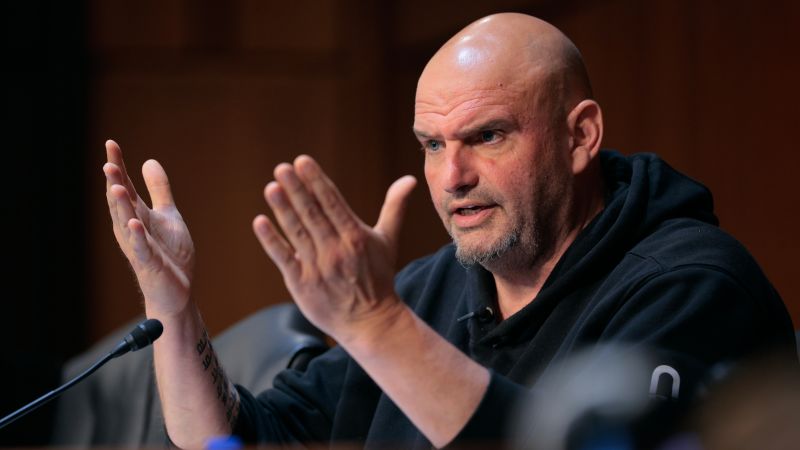Senator John Fetterman, a prominent figure representing Pennsylvania, recently announced that his chief of staff, Krysta Juris, is set to leave her position within his office. This decision comes at a crucial juncture for Fetterman, who has been facing increasing scrutiny regarding his fitness to serve in the Senate. In a statement shared with CNN, Fetterman expressed gratitude toward Juris for her invaluable contributions over the past two years. He concluded his statement by wishing her the best for her future endeavors, reflecting a tone of camaraderie and appreciation for her service.
In the same announcement, Fetterman introduced Cabelle St. John, a longstanding advisor in his office, as the new chief of staff. Fetterman emphasized that St. John has been a “trusted advisor since day one,” indicating a sense of continuity amid this leadership change. This elevation highlights the dynamics of staff transitions within political offices, particularly in scenarios where the incumbent has faced challenges, both partisan and personal.
The backdrop to Juris’ departure is noteworthy as it coincides with heightened scrutiny of Fetterman’s behavior and overall performance. His office has been marked by a significant turnover which has drawn the attention of political analysts and opponents. Notably, Fetterman’s critics have pointed to various allegations concerning his behavior and mental fitness for congressional duties. These claims gained specific traction following the release of a New York Magazine article that described allegations of erratic behavior from both former and current staff members, leading Fetterman to staunchly defend his capabilities.
In a televised interview with CNN, Fetterman labeled the allegations as a “hit piece,” categorically dismissing the claims of discontent coming from anonymous sources within his team. He characterized the narrative as deeply flawed, suggesting it stemmed from disgruntled individuals at odds with his management style. This public backlash is compounded by his previous disclosures regarding his mental health struggles, particularly clinical depression, and his treatment at the Walter Reed National Military Medical Center in 2023. Beyond defending himself against the allegations, Fetterman has been vocal about how the pressures of his campaign in 2022 exacerbated his mental health issues, demonstrating a willingness to discuss his struggles openly.
The debate over his competency has flooded media spaces, with critical editorial pieces like those from the Philadelphia Inquirer increasing the scrutiny. An editorial op-ed recently emphasized Fetterman’s absences from critical votes and committee meetings, ultimately calling into question his commitment to serving his constituents effectively. The editorial board explicitly urged him to “serve Pennsylvanians or step away,” further fueling discourse around his tenure.
In a forum broadcasted on Fox Nation, Fetterman addressed these criticisms directly, brushing off claims of negligence regarding his senatorial duties as “just not accurate.” He asserted that he is fulfilling his responsibilities, confidently stating, “I’m doing that job.” Fetterman’s handling of the situation reflects both his resolve to serve and the broader challenges faced by public officials under constant scrutiny.
Reflecting on his future, Senator Fetterman stated his intention to serve out the full term remaining in his Senate seat, which has approximately four years left. However, he remained noncommittal about his prospects for reelection in 2028. When asked about his plans for the future, he indicated uncertainty, saying, “Who knows what’s going to happen in ‘28,” thereby leaving room for speculation on his political trajectory.
In conclusion, Fetterman’s situation illustrates the often volatile intersection between mental health issues, political performance, and public perception. With staff changes, heightened scrutiny, and his determined commitment to his current role, the senator represents a complex figure in contemporary politics who continues to navigate challenges both in his personal health and in fulfilling his duties to his constituents.



